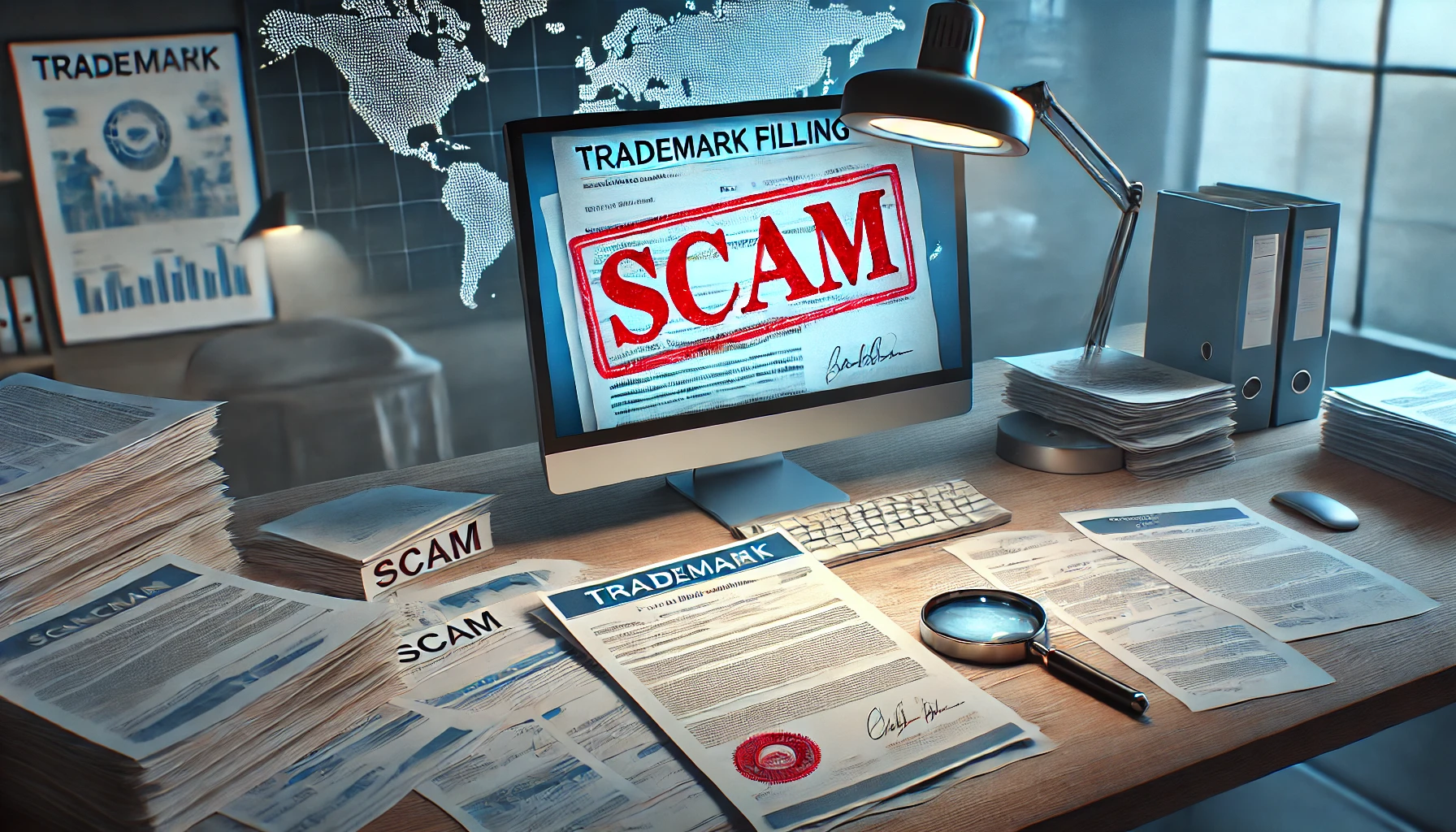Last month a German criminal court sentenced three defendants for 22 months of imprisonment for sending trademark scam invoices. Unfortunately, nearly every trademark applicant receives scam invoices sooner or later.
When we file a new trademark application for a client, we always warn them about receiving scam invoices. Those applicants that file their trademarks without a legal representative are more vulnerable, because nobody has warned them about receiving scam invoices. It is true that most trademark offices warn applicants of this risk, but it is questionable how many read these warnings after they are just filed their application.
Why are trademark scam invoices so deceptive?
Unfortunately, many companies pay these scam invoices, thinking that they are legitimate. The invoices are typically masked to look like they come from an official government entity. They often have similar names, incorporate similar logos, and include all official information about your trademark filing. Your filing details, after all, are all in the trademark database for anyone to see and scrape.
Also, the invoices often create a false sense of urgency, stating that you might lose your rights if a quick payment is not made. Additionally, these fake invoices are usually masked as “Reminders”, indicating that you have already failed to pay something. They also often use red colour to indicate the amount due, and give a relatively short period to pay it.
If you look very closely, somewhere in the invoice it usually says in small letters that “this is not an invoice, but an offer ” or something to the same effect. Of course, this fine print is almost always neglected.
In most cases, these scam invoices are actually offers to include the mark in some private register, or to “monitor” the mark and its renewal date. These “services” add no value to the applicant.
How big is the problem?
The problem affects pretty much every trademark applicant, even those in smaller countries. In addition to trademark lawyers, government trademark offices try to educate applicants about the problem. For example, EUIPO has a section on their website about this issue with a searchable database of scammers. EUROPOL has estimated that nearly all trademark applicants receive these scam invoices, and approximately 2% fall victim to them.
The German criminal case is not the first one. In many EU countries and in the US there have been criminal cases leading to convictions. Some years ago a Latvian citizen was imprisoned in the US for more than 4 years and ordered to pay more than 4,5 million USD in restituion.
A few years ago an American trademark attorney asked a US government entity to disclose information they have on trademark scams. In most countries public officials are obliged to disclose information upon request. Typically, they charge a nominmal fee for conducting the work, photocopying and mailing the material. In this case, the government’s response was that the cost of handling the request would be 42 USD per hour of research required. Their estimation was that it would take 22000 hours of work, with an estimated cost of nearly 1 million dollars. To put this another way, it would take one person more than 10 years of full time employment to compile the information they had.
How can you protect yourself
Unfortunately, many companies pay these scam invoices. The best way to protect yourself is to read the fine prints everywhere. If you look at the “invoice” carefully enough and read the fine print, you will find out in most cases that it is not actually an invoice but a solicitation for payment that you are under no obligation to pay.
If you get suspicious, you should contact the trademark office where you filed your application. They will be happy to help. Also, most trademark attorneys will also help you without any charge. They are very well aware of this issue, and in our experience happy to help anyone about to fall victim to this scam.
Also, using a trademark attorney to file your application will probably also decrease the risk. Most attorneys warn their clients about this issue, so when the scam letter comes in, the applicant is already aware of the issue. We regularly get emails from our clients thanking us for the warning and informing us of different scam letters they have received.
Many trademark offices, including EUIPO and WIPO publish on their website examples of scam invoices.
Conclusion
Trademark scam invoices is a problem that affects nearly every trademark applicant. It is important to understand that sending these kinds of scam invoices is a criminal offense in most countries, and many people have been convicted for imprisonment. Unfortunately, the invoices are carefully designed to make them seem official and urgent.
Read more
EUIPO website on scam invoices
WIPO website on scam invoices



